Urology
-

Marianna Alperin, M.D.
Marianna Alperin, M.D. is Associate Professor of Obstetrics and Gynecology. Her research focuses on preventative strategies for pelvic floor disorders and reversing pelvic floor dysfunction when present. Her laboratory uses basic and translational studies to address questions in this area, including animal models, cadaveric tissues, biopsies from living women, and computational models to study the effects of pregnancy, birth injury, aging, and menopause of pelvic floor dysfunction. She is recipient of the Excellence in Teaching Award from the Association of Professors of Obstetrics and Gynecology. Her research program is currently supported by two R01 awards (R01DK128639 and R01HD092515). -
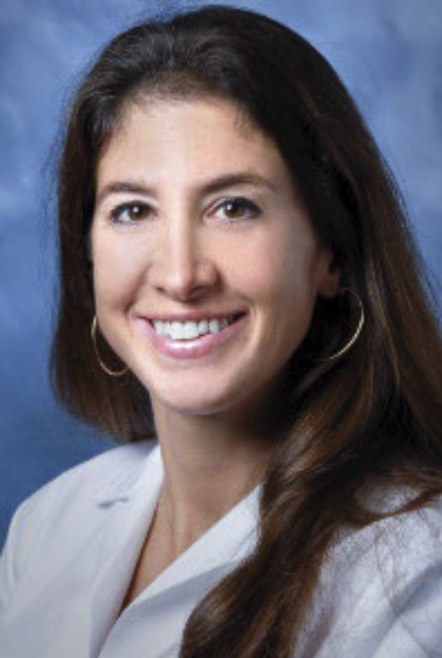
Jennifer Anger, M.D., M.P.H.
Jennifer Anger, M.D., M.P.H. is one of two overall Principal Investigators for this U2C/TL1 submission. She will also serve on the Executive Committee and leads the Urology initiatives in the U2C. She is Professor and Vice Chair for Research in the Department of Urology at UCSD. A product of NIH training grants herself, she has a long track record of NIDDK funding, dating back to a NRSA to study outcomes of sling surgery for stress urinary incontinence (F32 DK072874), an NIH loan repayment award, and a K23 award to develop and pilot test quality indicators for urinary incontinence (K23 DK080227). She was administrative Principal Investigator for the Cedars-Sinai Site of the Multidisciplinary Approach to the Study of Chronic Pelvic Pain (MAPP) where she oversaw the work of both proteomics and genomics laboratories (U01DK103260), and she was MPI of an R01 to study the role of urinary metabolites in the diagnosis of interstitial cystitis/bladder pain syndrome (1RO1DK100974). She received a Pilot and Feasibility Grant from the Prevention of Lower Urinary Tract Symptoms (PLUS) Research Consortium to qualitative analyze perceptions of bladder health through social media. Her mentee Dr. Gabriela Gonzalez, a first generation American and medical student at the time (now a urology resident at UC Davis), first authored 5 of 6 corresponding manuscripts from this grant. She also has a long track record of mentoring successful trainees, from high school to faculty level. Dr. Anger was founder and Director of the ACGME accredited Fellowship in FPMRS at Cedars-Sinai prior to coming to UCSD. Her recent NIDDK funding is through R01, R56, and U01 awards (R01HS026491, R56DK117261, and U01DK111226). She is currently funded as Principal Investigator I by both AHRQ and PCORI to conduct primary care quality improvement interventions for urinary incontinence (an NIDDK condition). -

Linda Brubaker, M.D.
Linda Brubaker, M.D. is Professor in the Department of Obstetrics and Gynecology at UCSD Division of Female Pelvic Medicine & Reconstructive Surgery (FPMRS, a joint specialty also shared by Urology). Her research focus has been specifically in the role of the urinary microbiome in urinary iIncontinence and pelvic floor dysfunction syndromes. She is Principal Investigator of an R01 on this topic, and she is also a Multi Principal Investigator of a large multi-center observational cohort, the “Prevention of Lower Urinary Tract Symptoms (PLUS) Study”. Both projects are supported by the NIDDK (R01 DK104718 and U01DK106898). -
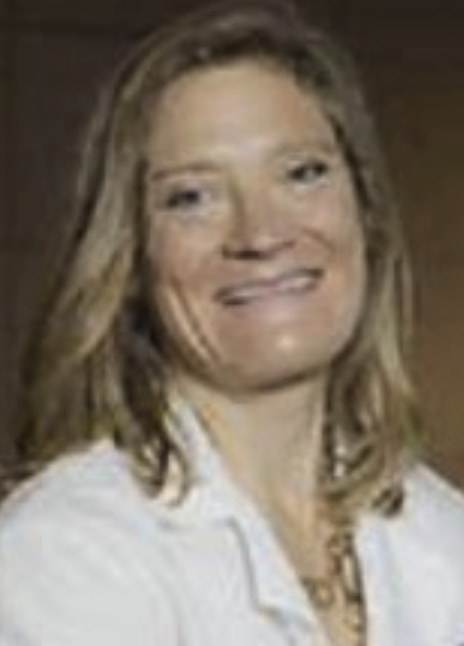
Emily Lukacz, M.D.
Emily Lukacz, M.D. is Professor of Obstetrics and Gynecology at UCSD and Director of the Fellowship in FPMRS at UCSD, which trains both urologists and gynecologists. Her research is focused on pelvic floor dysfunction and lower urinary tract symptoms in Women. She has published extensively on urinary incontinence, pelvic pain syndromes, dyspareunia, and novel surgical approaches to address these problems in older women. Her research team is supported by a U01 contract from the NIDDK as San Diego Site Principal Investigator of the Prevention of Lower Urinary Tract Symptoms “PLUS” cohort from the NIDDK (U01DK106827) and a contract from the National Institute of Child Health and Human Development supporting Pelvic Floor Disorders Network center of San Diego (UG1HD054214). She is a co-I on Dr. Anger’s PCORI award. -
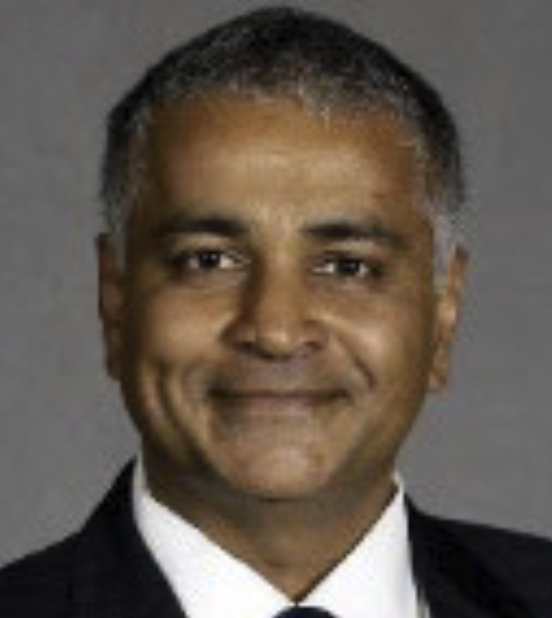
Manoj Monga, M.D.
Manoj Monga, M.D. is Professor and Chair of the Department of Urology at UC San Diego. His research focuses on endourology and stone disease, including understanding why stones form, analyzing endourologic medical devices and therapies used in treatment options, and examining patient-centered approaches to surgical therapies for stone disease. He has published more than 400 peer reviewed manuscripts on topics such as kidney stone management and treatment, innovated and developed several medical devices, and is secretary of the American Urological Association. As a new chair to UCSD, he has created several new initiatives in the Department of Urology, hiring 4 new faculty (three of whom specialize in benign urologic disease). He is currently developing a biobank in benign urology and urologic oncology. Together with Vice Chair of Research, Dr. Anger, they plan to expand funded research in benign urology through grant applications and strong mentorship of junior faculty. -

Mahadevan Rajasekaran, Ph.D.
Mahadevan Rajasekaran, Ph.D. is Associate Professor of Urology at UCSD and San Diego VA. His research focuses on mechanisms of urinary incontinence in men and women. He is Principal Investigator of a VA Merit Review Award evaluating the novel Wnt-β catenin signaling pathway, and its role in regulating the urinary sphincter muscle complex and fibrosis and muscle atrophy observed in advancing age (I01RX001694). His team is also evaluating novel pharmacological interventional agents for muscle regeneration of the urinary sphincter. Since the last submission of the U2C/TL1, Dr. Rajasekaran has received a new VA merit award to test the feasibility of transpelvic magnetic stimulation as a novel intervention to improve urogenital function in men after prostate procedures and was recently awarded an R21 by the NIDDK to study novel methods to treat urethral strictures.
Hematology
-
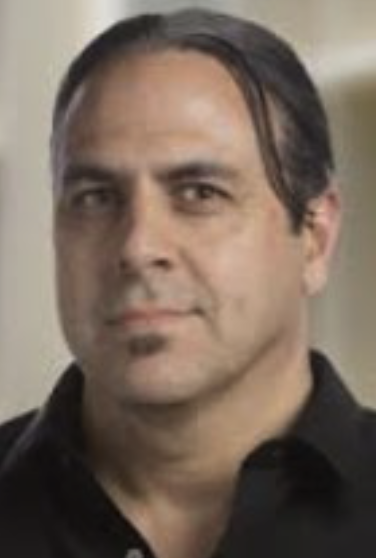
Sergio Catz, Ph.D.
Sergio Catz, Ph.D. is Professor of Medicine at the Scripps Research Institute (TSRI). His research focuses on vesicular trafficking, and the effects of anomalous accumulation of metabolites in lysosomes. Through this focus, his work has focused extensively on lysosomal storage diseases including cystinosis. This work has relevance to both hematology and nephrology. His lab has also evaluated novel drugs that can improve vesicular trafficking (RapGTPase) and is evaluating pre-clinical models to determine their potential therapeutic benefit. His laboratory also works on granulocyte maturation and function, and the effects of neutrophil granulocytes on adhesion, migration, chemotaxis, phagocytosis and the production of reactive oxygen species and neutrophil extracellular traps (NETs). He is currently Principal Investigator on two R01 awards and a new program project awards focused on neutrophil mechanisms during inflammation (R01DK110162, R01HL088256, and P01HL152958). -

Mark Ginsberg, M.D.
Mark Ginsberg, M.D. is Professor of Medicine at UCSD, and director of the Physician Scientist Training Pathway. His research focuses on cell adhesion mechanisms, particularly on the role and function of integrins in platelet adhesion. He leads a T32 award focused on blood cell adhesion, and program project awards focused on cellular mechanisms of inflammation, hemostasis and thrombosis. (T32HL 086344, and P01HDl151433). He has served as Associate Editor at Journal of Clinical investigation, and Blood previously. -

Philip Gordts, Ph.D.
Philip Gordts, Ph.D. is Assistant Professor in the Division of Endocrinology and Metabolism, Department of Medicine at UCSD. His research focuses on the impact of proteoglycan biology on disease. He is currently funded by an R01 and R21 award (R01 DK126848 and R21 HD089067). His NIDDK funded R01 evaluates the role of Syndecan-1 in Hepcidin regulation and iron metabolism, evaluating the heparan sulfate as key regulator of hepcidin regulation, iron utilization, and erythropoiesis. Dr. Gordts is recognized as an outstanding mentor and has been particularly successful in recruiting URM (underrepresented minority) candidates to work in his lab. -

Gabriel Haddad, M.D.
Gabriel Haddad, M.D. is Professor and Chair of Pediatrics at UCSD. He will be a key member of the TL1 faculty to facilitate integration of pediatrics into all phases of the project. His research focuses on genetic determinants of erythropoiesis induced by high altitudes and hypoxia, comparing genetic determinants among different indigenous populations living at similar altitudes but distinct resting hemoglobin levels, and mechanisms of hypoxia tolerance of the brain. He is currently supported by an R01 and 2 R21 awards (R01HL146530 R21NS120023, and R21NS111270). As a gifted mentor and advocate for training physician scientists, he also leads a newly awarded K12 award supporting pediatric research training (K12HD105271). -

Catriona Jamieson, M.D., Ph.D.
Catriona Jamieson, M.D., Ph.D. is Professor of Medicine and Chief of the Division of Regenerative Medicine at UCSD as well as Director of the Sanford Stem Cell Clinical Center. Her research focuses on the role of RNA editing on hematopoietic stem and progenitor cell myeloid lineage commitment and cell cycle regulation. Her laboratory is currently supported by two R01 awards (R01DK114468 and R01CA205944) in addition to research support from the California Institute for Regenerative Medicine (CIRM), NASA, the Leukemia and Lymphoma Society, and the Myeloproliferative Neoplasms (MPN) Research Foundation. -
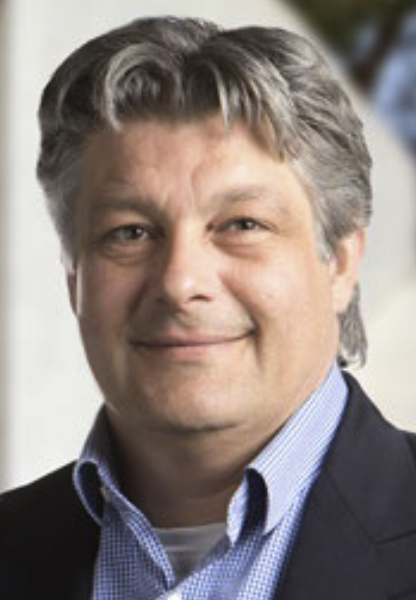
Laurent Mosnier, Ph.D.
Laurent Mosnier, Ph.D. is an Associate Professor at TSRI. His research primarily focuses on the discovery of new mechanisms, pathways, and molecules that regulate hemostatic balance (i.e., the balance between preventing bleeding and thrombosis). This includes an active program directed towards defining the cytoprotective effects of activated protein C – activities with significant implications in numerous kidney-related diseases including renal I/R and kidney inflammation. With insights into the molecular mechanisms of coagulation, his group is working towards the explicit goal of developing new approaches to therapeutically mitigate pathologies associated with infection, stroke, and excessive bleeding. -
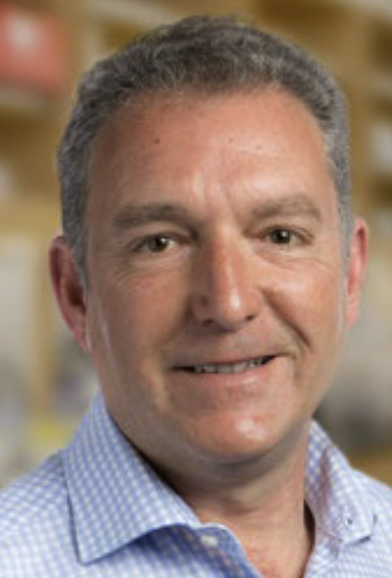
Enrique Saez, Ph.D.
Enrique Saez, Ph.D. is a Professor at TSRI. His laboratory focuses on understanding the underlying mechanisms by which cells adapt to nutrient dysregulation. This includes the recent seminal discovery of the heme chaperone PGRMC2, which functions to deliver heme to the nucleus to facilitate transcriptional signaling. This discovery has led him to further define the importance of PGRMC2-dependent heme regulation in diverse biological mechanisms including erythropoiesis. He is currently supported by two R01 awards, both from NIDDK (R01DK1121196, RC2DK114785). -
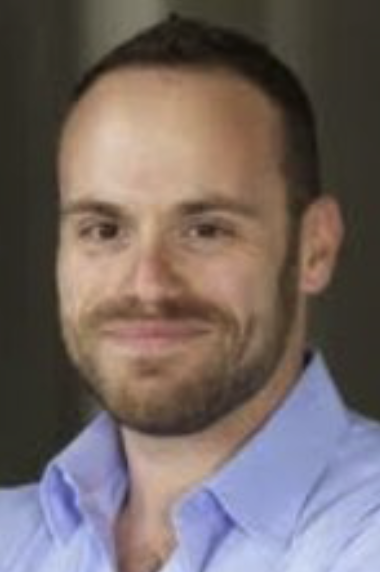
Robert Signer, Ph.D.
Robert Signer, Ph.D. is an Assistant Professor in the Division of Regenerative Medicine at UCSD. His laboratory studies mechanisms that regulate hematopoietic stem cell (HSC) self-renewal. He is currently Principal Investigatorunique mechanisms of translational control and protein homeostasis promote HSC maintenance and longevity in vivo. The second focuses on mechanisms that support ex vivo maintenance and expansion of HSCs, with an emphasis on the heat shock response and its role in protecting HSCs from proteotoxic stress. -

David Traver, Ph.D.
David Traver, Ph.D. is Professor of Molecular and Cellular Medicine at UCSD. He was recently the recipient of the 2019 McCulloch and Till Award from the International Society of Experimental Hematology honoring early to mid-career scientists who have made substantial impacts in the field of hematology. His laboratory uses zebrafish embryos to study the development of blood cell components in hematopoiesis. Translucency of the zebrafish allows visualization of the earliest stages of hematopoiesis. He is currently Principal Investigatorof three R01 awards and an R21 award from the NIH to support his work. (R01DK074482, R01OD026219, R01HL135205, and R21AI137575).
-
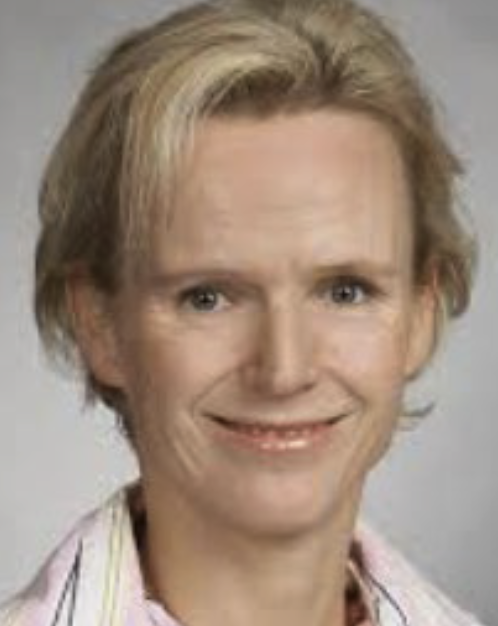
Annette von Drygalski, M.D., Pharm.D.
Annette von Drygalski, M.D., Pharm.D. is Professor in the Department of Medicine at UCSD and Director of the Hemophilia and Thrombosis Center. Her research focuses on better understanding the mechanisms operating the anti-fibrinolytic system and how this process works in patients with hemophilia and specifically with joint bleeding. She also studies the vascular effects of hemophilia, resulting in high rates of systemic hypertension, thus providing unique research opportunities of potential interest to trainees from both hematology and nephrology backgrounds. Her research is supported by the National Hemophilia Foundation, the HRSA (Health Resources and Services Administration), and pharmaceutical companies. -

Dong-Er Zhang, Ph.D.
Dong-Er Zhang, Ph.D. is Professor and Vice Chair for Research in the Department of Pathology at UCSD. Her laboratory uses molecular biology, protein biochemistry, cell biology, and animal models to address questions related to blood cell differentiation, transformation, and innate immune responses. An ongoing project focuses on the transcription factor AML1 (RUNX1) and its fusion protein AML1-ETO in these processes. Her work is currently supported by 4 R01 awards and a P30 award from both the NIDDK and the NCI (R01DK098808, R01CA104509, R01CA177305, R01CA232147 and P30CA023100).
Nephrology-Hypertension
-

Matthew Allison, M.D., M.P.H.
Matthew Allison, M.D., M.P.H. is Professor and Chief of the Division of Preventive Medicine and is Program Director of a T32 in cardiovascular disease funded by the NHLBI. His research focuses on subclinical vascular disease. He directs the vascular laboratory at the San Diego VA and is an expert in evaluation of peripheral and carotid disease, and use of computed tomography for assessment of vascular calcification. He has been particularly interested in the great burden of vascular disease in CKD patients and has published extensively with nephrology faculty on this TL1. The natural overlap of his work with that related to KUH is through (1) the high prevalence of peripheral arterial disease in dialysis patients, and (2) the contribution of kidney disease to accelerated vascular calcification and its consequences. Dr. Alison has published and collaborated with the TL1 faculty in both topic areas. Dr. Allison is currently Principal Investigator of 2 R01 awards funded by the NHLBI and NIDDK. One is focused on the consequences of vascular stiffness on blood pressure and cardiac structural changes (1R01HL142283), and the other focuses on cardiometabolic risk factors in Latinos, including diabetes and CKD (R01DK106209). He is also Program Director of a center grant from the American Heart Association. -

Cheryl Anderson, Ph.D.
Cheryl Anderson, Ph.D. is Professor and Dean of the School of Public Health at UCSD and has a secondary appointment in the Division of Nephrology. She is a member of the National Academy of Medicine. Her research focuses on nutrition and diet as modifiable and common risk factors for CKD and CVD. Her work has documented associations of previously untested nutritional and dietary factors such as net endogenous acid production with adverse outcomes in individuals with CKD. Her team also documented barriers and facilitators to dietary modification for African Americans, a population that is disproportionately affected by CKD. These findings have influenced science and health in that they have direct relevance to the management of hypertension, prevention hypertension, and CKD progression, improvement of the measurement of nutritional factors, and the highly debated public health policy about health consequences of adverse dietary intake. Dr. Anderson is Principal Investigator of an R01 (R01HL140488) focusing on sodium intake and blood pressure and leads a 10-day seminar on CVD epidemiology supported by an R31 from the NHLBI (R13HL144005). Finally, she is Principal Investigator for the “RESOLVE to Save 100 Million Lives”, a grant supported by Bloomberg Philanthropies that focuses on sodium reduction world-wide to lower blood pressure, stroke, and heart disease. -
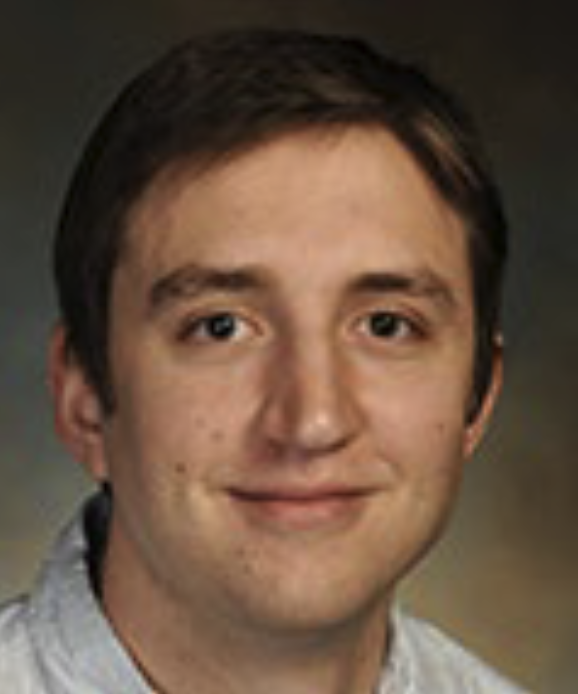
Michael Bollong, Ph.D.
Michael Bollong, Ph.D. is an Assistant Professor at TSRI. His program primarily focuses on developing new therapeutic strategies to intervene in diverse diseases through mechanisms including tissue regeneration and repair. One specific interest is focused in developing pharmacologic approaches to inhibit renal fibrosis and promote kidney regeneration as a potential treatment strategy for chronic kidney disease. In addition, he has an active CIRM funded program developing therapeutic strategies for the treatment of Myelodysplastic syndromes by promoting differentiation of hematopoietic stem cells. Thus, his participation spans both the hematology and nephrology arms of this program and integrates expertise in chemistry, high throughput screening, and chemical biology to the mentorship team. He is funded by CIRM (DISC2-13428) and NIH/NIGMS (R35GM146865). -

Christina Chambers, Ph.D.
Christina Chambers, Ph.D. is Professor and Director of Clinical Research for the Department of Pediatrics at UCSD. She is also a gifted mentor and was recipient of UC San Diego's Chancellor Award for Excellence in Post-Doctoral Scholar Mentoring in 2018. Her team studies environmental causes of birth defects and developmental disabilities, focusing on prenatal and breastfeeding exposures. She leads longitudinal cohort studies in pregnant and breastfeeding women throughout the US and Canada. Much of this research is conducted among women with autoimmune diseases many of whom have hypertensive disorders and many of whom are at increased risk of hypertensive complications such as preeclampsia. Among the outcomes she studies are kidney and other urinary tract and renal anomalies in the offspring. She is currently Principal Investigator of 2 R01 awards (R01AA026579 and R01HD101540), a new R21 (R21HD104412) and a U01 contract (U01AA014835) from the NIH. -
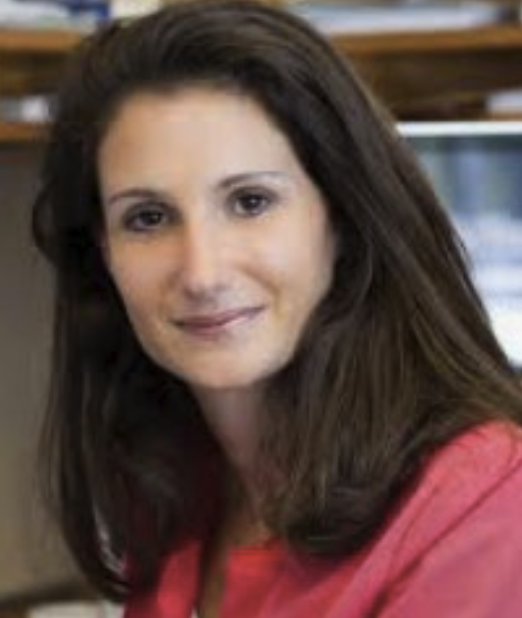
Stephanie Cherqui, Ph.D.
Stephanie Cherqui, Ph.D. is Associate Professor of Pediatrics in the Division of Genetics. Her research focuses on the development of stem cell and gene therapy strategies for degenerative multisystemic disorders. Her work led to the first-in-human clinical trial for autologous hematopoietic stem cell therapy for cystinosis, a rare genetic disease characterized by kidney failure. She is currently Principal Investigator of three R01 awards (R01DK090058, R01DK110162, and R01NS108965) and is also supported by the California Institute of Regenerative Medicine (CIRM), and the Cystinosis Research Foundation. -
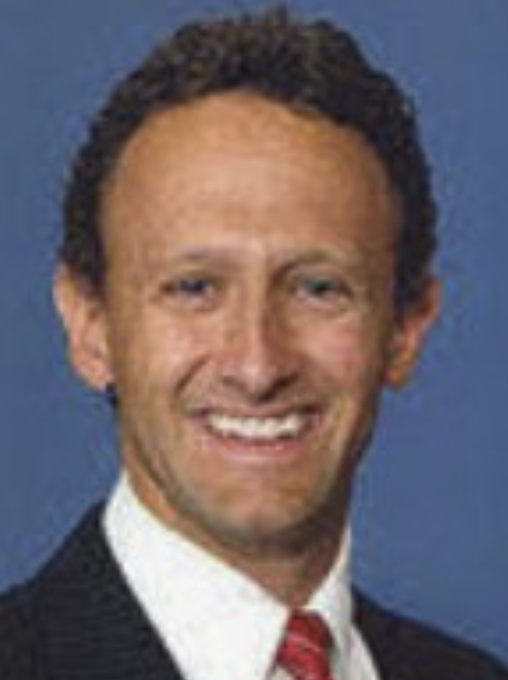
Harold Hoffman, M.D.
Harold Hoffman, M.D. is Professor of Pediatrics and Chief of the Pediatric Division of Allergy, Immunology, and Rheumatology. His research focuses on genetics of rare human diseases. His studies of the NLRP3 inflammasome and innate immunity were instrumental in the development of therapies for cryopyrin associated pediatric syndrome (CAPS). This pathway is intensely being evaluated for its relevance to immune suppression and rejection risk in kidney transplant recipients. He has several productive collaborations with kidney disease investigators to study the role of the NLRP3 pathway in acute ischemia-reperfusion injury, infantile nephropathic cystinosis, and cachexia associated with chronic kidney disease. He is currently Principal Investigator of two R01 awards (R01HL140898 and R01DK113592). -

Mia Huang, Ph.D
Mia Huang, Ph.D. is an Associate Professor at TSRI and Investigator at the San Diego Glycobiology Research and Training Center. Her laboratory focuses on chemical glycobiology and develops tools to enable the study of how glycans function in physiology and disease. The tools her group has developed have enabled the study of how glycans and glycan-binding proteins act together to cause fibrosis of multiple organs, including the kidney. She is currently supported as Principal Investigatorof four grants, one of which involves the study of how a glycan-binding protein called galectin-3 and its associated glycoproteins activates the trans-differentiation of stem cells into myofibrotic phenotypes. This work has important implications in the fibrosis of the kidney. She is currently supported as Principal Investigatorof multiple awards from the NIH including an NIDDK R56 award (R56DK126895, R35GM142462, R21NS126916, R44AI165255). -

Jan Hughes-Austin, Ph.D.
Jan Hughes-Austin, Ph.D. is Assistant Professor in the Department of Orthopedic Surgery at UCSD. She was mentored by Dr. Ix (TL1 Principal Investigator)since her post-doctoral fellowship supported by a T32, and her K01 award. She is now funded on her first R01 award (R01AG065876). Her research focuses on CKD< Mineral Bone Disorders (CKD-MBD) in patients with hip fractures. Her R01 is recruiting patients with CKD who experience a hip fracture, where bone and blood are harvested at the time of surgical correction. The bone is utilized for histomorphometry to define turnover and mineralization, with the overarching goal to improve targeted treatment to prevent re-fracture in these high-risk patients. Dr. Hughes-Austin has been actively engaged in the Nephrology T32 since its inception, very active in the “Near Peer Mentoring” program, and is a gifted teacher. We are proud to have her join the faculty on this TL1, as an example of how our post-doctoral training support has fed forward to develop faculty to mentor future generations of scholars. She is also an example of how investigators from distinct backgrounds can be brought to study KUH topic areas and make meaningful contributions. -
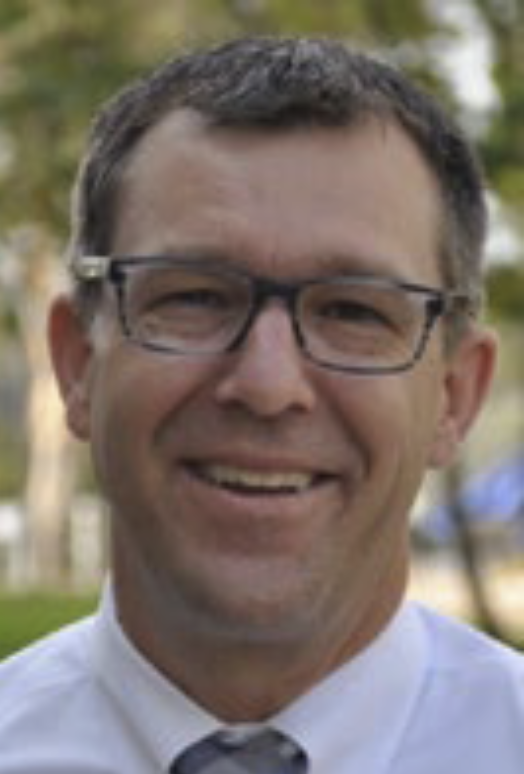
Joachim H. Ix, M.D., M.A.S.
Joachim H. Ix, M.D., M.A.S. is Professor of Medicine, and Chief of the Division of Nephrology-Hypertension at UCSD. He serves as overall Principal Investigator for the U2C/TL1 application along with Dr. Anger, and Principal Investigator of this TL1 in partnership with Drs. Wiseman and Weaver. His role as TL1 mentor is described here. Dr. Ix’s research program focuses on two major topics. The first is in understanding abnormalities in bone in persons living with kidney disease. In this area, his group has made important discoveries on the role of fibroblast growth factor 23, klotho, and other regulators of bone, in identifying individuals with lower bone turnover. This research work dovetails with his clinical work where he leads a bone biopsy program for CKD patients at UCSD. The second topic of focus is in identifying urine biomarkers that give insight to tubule interstitial fibrosis and predict more rapid kidney function loss. Both in his mineral bone disorder work and in his renal tubule fibrosis work, his research has led him to design and lead randomized clinical trials, trying to suppress biomarkers of bone turnover (the COMBINE trial) or renal fibrosis (the TOP CKD trial). He is currently Principal Investigator of 3 NIH R01 awards (R01DK098234, R01 DK128803, R01 DK119528) and a U01 contract (U01 DK102730). He is also a committed mentor. He led the aforementioned nephrology T32 that recently ended (T32DK104717) and is currently primary mentor to 5 NIK K awardees and 1 VA CDA awardee. -

Jeffery Kelly, Ph.D.
Jeffery Kelly, Ph.D. is Professor of Medicine at the Scripps Research Institute (TSRI). His research focuses on the principles of protein folding and to comprehend the basis for misfolding and/or aggregation diseases such that his team can identify novel therapeutic strategies. This work has led him to extensive work within amyloidosis and its effects in the kidney. His laboratory is currently supported by three R01 awards (R01DK046335, R01HL157566, and R01AG046495). On September 9, 2021, Dr. Kelly became the recipient of a $3M “Breakthrough Prize” from the NIH – the largest financial award in science, in honor of ground-breaking discoveries in science (1 of 9 nationally). -

Andrea LaCroix, Ph.D.
Andrea LaCroix, Ph.D. is Professor and Chief of the Division of Epidemiology in the Department of Family Medicine at UCSD. Her research focuses on aging and women’s health. She has served as <Principal Investigator of multiple interventional trials in older adults, including the Women’s Health Initiative (WHI). She is also Program Director for a T32 award focused on aging research. Her research has focused extensively on bone disease in older patients and has evaluated CKD in this context extensively in her work. Her current research support includes an R01 grant (R01AG048209), a U01 contract (U01HL122273), and a P01 contract (P01AG052352) from the NIH. -
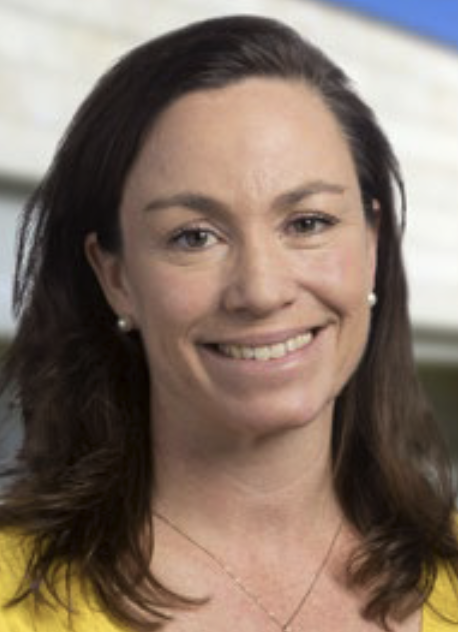
Katja A. Lamia, Ph.D.
Katja A. Lamia, Ph.D. is an Associate Professor at TSRI. Her laboratory focuses on studying circadian regulation of cellular signaling and physiology, particularly how these pathways regulate glucose, drug, and tumor metabolism. This work has led her to study how dosing time influences the efficacy and toxicity of the widely used diabetes drug metformin, which impinges on two important aspects of kidney and urologic function, including the role of kidneys in drug efflux and the recently recognized impact of chronic metformin use on congenital urologic defects in male offspring. She is currently supported as Principal Investigator of two R01 awards from the NCI, one of which focuses on defining the role of circadian regulation of HIF signaling in renal cancers (R01CA211187, R01CA271500). -
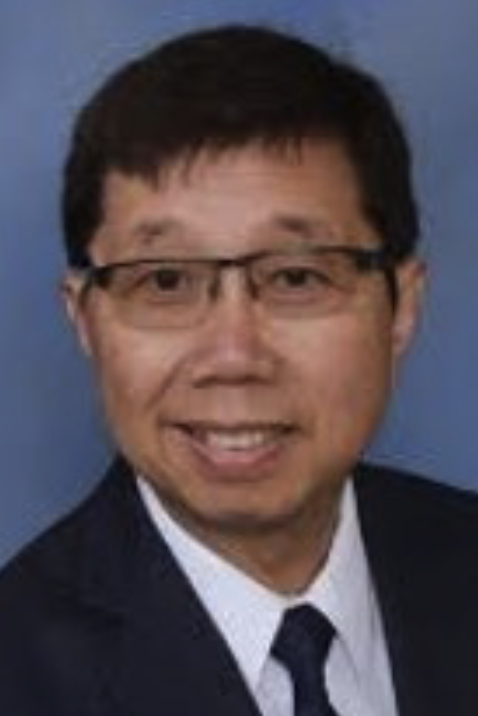
Robert Mak, M.D., Ph.D.
Robert Mak, M.D., Ph.D. is Professor of Pediatrics and Chief of the Division of Pediatric Nephrology at UCSD. His laboratory focuses on the neuroendocrinology of cachexia and osteodystrophy of CKD, and biomarker discovery. He is widely recognized for expertise on height and weight regulation in children with CKD. His lab recently completed a 3-year grant from the US-Israel Binational Science Foundation and is funded from 3 current grants from the Cystinosis Research Foundation, and as Co-I on NIH U01 and R01 awards. He is currently supported by an R01 evaluating the role of the NLRP inflammasome in muscle loss in children with CKD (R01DK125811). Dr. Mak is also an excellent mentor, previously supported by a K24 mentorship award earlier in his career. -
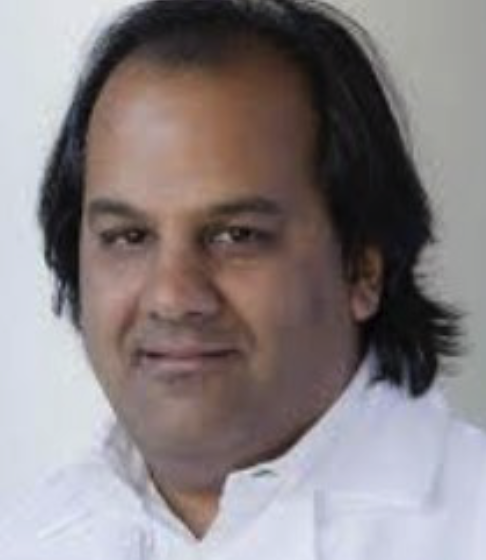
Atul Malhotra, M.D.
Atul Malhotra, M.D. is Professor of Medicine in the Division of Pulmonary and Critical Care Medicine at UCSD. His research focuses on the pathogenesis of sleep apnea and the pathophysiology underlying its complications. Within this area, he has evaluated changes in blood pressure due to sleep apnea. He has published extensively in this area is widely recognized for his leadership and is past President of the American Thoracic Society. His research is currently supported by three R01 awards from the NIH (R01AG063925, 1R01HL148436, and R01HL154926). He is also a gifted and committed mentor, and along with Prabhleen Singh, mentored Mark Hepokoski to receipt of his VA CDA during the last several years on the Nephrology T32 award. His commitment to mentoring the next generation of scientists is also evident from his position as Program Director of a T32 in Pulmonary and Critical Care Medicine, and as Principal Investigator of a K24 award which protects his FTE for mentoring activities (T32HL134632 and K24HL132105). -
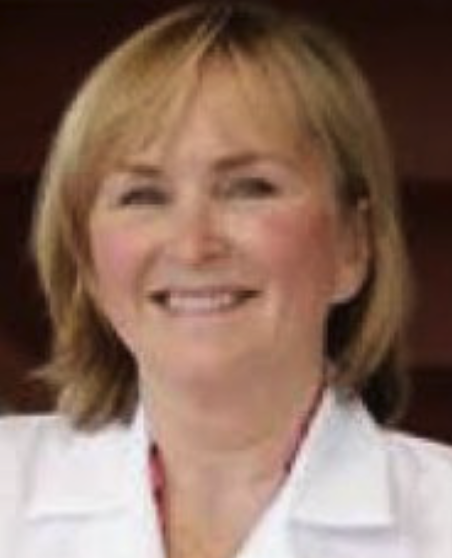
Dianne McKay, M.D.
Dianne McKay, M.D. is Professor of Medicine at the Scripps Research Institute (TSRI). She serves on the EC as the lead to integrate TSRI faculty with the U2C/TL1. has been very active in mentoring scholars interested in transplant nephrology and immunology on our Nephrology T32. Her laboratory focuses on immunologic mechanisms of ischemia-induced tissue injury with a particular interest in the innate immune system in renal ischemia /reperfusion injury (IRI). Her team focuses on understanding the innate immune system as a key initiator of tissue injury in the kidney. Efforts in the laboratory are currently supported by an R01 and R21 from the NIH (R01DK113162 and R21AI154471) and from a grant from the California Institute of Regenerative Medicine (CIRM). -
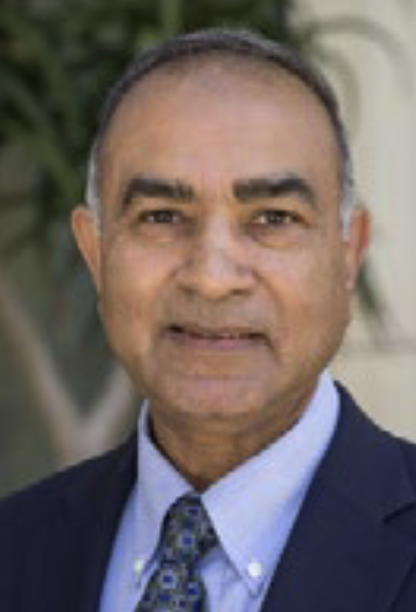
Ravindra Mehta, M.D.
Ravindra Mehta, M.D. is Professor of Medicine in the Division of Nephrology at UCSD. He is internationally recognized as a leader in clinical research of AKI. Dr. Mehta is Principal Investigator of the San Diego site of the joint UCSD/UAB O’Brien Center P30 focused on AKI funded by the NIH (P30DK079337). He also founded and leads the UCSD Clinical Research “CREST” program that clinical scholars on the TL1 will engage in for their formal training in Module 2. -

Sunder Mudaliar, M.D.
Sunder Mudaliar, M.D. is Professor of Medicine in the Division of Endocrinology and Metabolism at UCSD. Dr. Mudaliar is a leading diabetologist and leads the San Diego site of the Diabetes Prevention Program (DPP; U01DK048339). Dr. Mudaliar has co-mentored prior scholars on our T32 and is heavily invested in their success. His interest in diabetes and access to DPP are closely aligned with nephrology research topics and provides a unique resource to our scholars. -

Loki Natarajan, Ph.D.
Loki Natarajan, Ph.D. is Professor of Biostatistics in the Department of Family Medicine and Public Health at UCSD. Dr. Natarajan’s research focuses specifically on novel biostatistics approaches to address big data “omics” analyses when applied to kidney disease patients. She has an R01 that is ancillary to the Chronic Renal Insufficiency Cohort (CRIC) focused on urine metabolomics and risk of CKD progression in patients with diabetic kidney disease. She is supported as Principal Investigator of two R01s (R01DK114945, and R01DK110541) and of the biostatistics core of program project grant focused on aging research (P01AG052352). -

Sanjay Nigam, M.D., Ph.D.
Sanjay Nigam, M.D., Ph.D. is Professor of Pediatrics and Medicine, and a member of the multi-scale biology program at UCSD. His work focuses on multi-specific “drug” transporters, particularly the organic anion transporters (OATs) in the renal proximal tubule. These transporters are involved in handling of many small molecule drugs, toxins, metabolites and uremic solutes by the kidney. He also continues to make contributions to renal development and tissue engineering. His research laboratory is currently supported by 2 R01’s,1 R21 award from the NIH (R01DK109392, R01GM132938, and R21ES029663), and a NICHD U54 project. -

Christopher Parker, Ph.D
Christopher Parker, Ph.D. is an Associate Professor in the Department of Chemistry at The Scripps Research Institute (TSRI). His laboratory develops chemical probes and powerful proteomic methods to investigate the interactions and functional consequences of small molecules (e.g. metabolites, drugs, etc.) in native biological systems. These tools have enabled investigations into the proteome-wide interactions and trafficking of heme, as well as its pathophysiological effects (inflammation, vasoconstriction, direct cytotoxicity) in both acute and chronic kidney diseases. His lab is currently supported by multiple awards from the NIH that focus on the use of chemical proteomic methods to develop new therapeutic strategies for inflammation, viral infection, and neurofibromatosis (R01AI156268, U19AI171443, R61NS119658). -
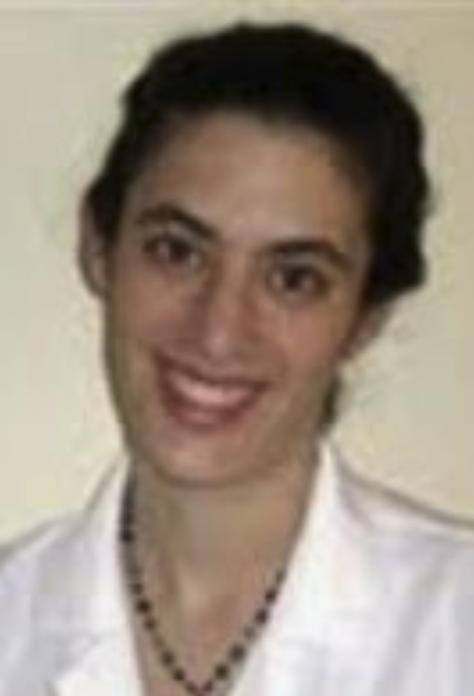
Dena Rifkin M.D., M.S.
Dena Rifkin M.D., M.S. is Professor in the Division of Nephrology at UCSD and will serve as Multi- Principal Investigator of the Network Core, and a member of the Executive Committee for this U2C/TL1. Here, we briefly summarize her research focus. She was mentored to independence by Dr. Ix who served as her K23 mentor early in her career. Her focus is on the safety and efficacy of blood pressure treatment in elderly and frail patients. Her K23 award and a prior R03 award focused on ambulatory blood pressure with cognitive function in the SPRINT trial. She is currently Principal Investigator of a VA Merit Award which supports a multi-center randomized clinical trial testing the efficacy and safety of self-management and titration of blood pressure meds vs. usual care in hypertensive veterans (I01HX002109). She is also primary mentor for Dr. Alexander Bullen’s (scholar on the Nephrology T32) recently awarded VA CDA award. -

Prabhleen Singh, M.D.
Prabhleen Singh, M.D. is Associate Professor of Medicine in the Division of Nephrology at UCSD. Her research focuses on examining the role of mitochondrial dysfunction in AKI and in CKD. She has expertise in in vivo physiological techniques to measure renal hemodynamics, as well as renal micropuncture to assess glomerular and tubular function at a single nephron and whole kidney level. Dr. Singh completed her fellowship, joined the faculty, and was mentored to independence all within the Division of Nephrology at UCSD. Her research is currently supported by a VA Merit Award (I01BX002175) and an R01 from the NIH (R01DK107852). Since the last submission of this R01, she has received a new VA Merit Award, and also received the Director’s Award, extending the funding period to 7 rather than 5 years (I01BX00217). On the Nephrology T32, she mentored Dr. Mark Hepokoski, who has since transitioned to a VA CDA and joined the UCSD faculty. -
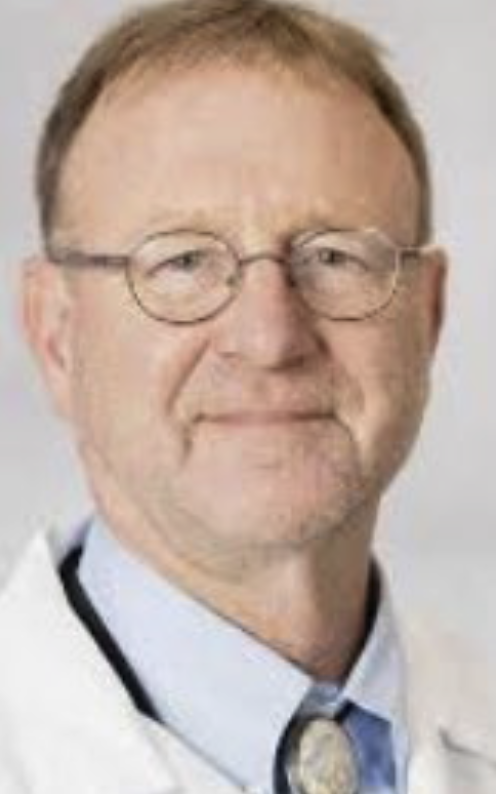
Scott Thomson, M.D.
Scott Thomson, M.D. is Professor of Medicine in the Division of Nephrology at UCSD and is Nephrology Section Chief at the San Diego VA. His research interest lies in renal hemodynamics and the physiology of crosstalk between the glomerulus and proximal tubule. He is an expert in renal micropuncture and applies engineering principles to understand renal hemodynamics. He and Dr. Vallon discovered mechanisms related to tubulo-glomerular feedback in hyperglycemia and diabetes that are widely believed to represent the mechanisms by which SGLT-2 inhibitors prevent CKD progression and ESRD in diabetic nephropathy. Dr. Thomson teaches both in the medical school and graduate courses in engineering at UCSD. His research is currently supported by an R01 award from the NIH (R01DK112042) and by multiple industry sponsored studies. Dr. Thomson completed his nephrology fellowship, research training and was mentored to faculty all within the Division of Nephrology at UC San Diego. -
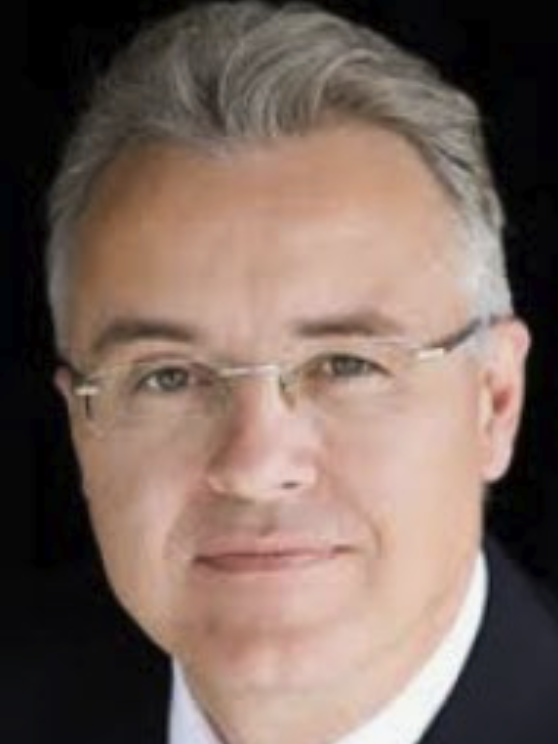
Volker Vallon, M.D.
Volker Vallon, M.D. is Professor of Medicine in the Division of Nephrology at UCSD. His research characterizes the roles played by ion channels, transporters, and receptors in the cell membrane and intracellular signaling pathways in the biology of the kidney. His work offers new insights into the metabolic control of kidney function, the role of the kidney in the regulation of blood pressure, and the pathophysiology of the early diabetic kidney, acute kidney injury, and chronic kidney disease. He and Dr. Thomson discovered mechanisms related to tubulo-glomerular feedback in hyperglycemia and diabetes that are widely believed to represent the mechanisms by which SGLT-2 inhibitors prevent CKD progression and ESRD in diabetic nephropathy. His team is performing in vivo renal micropuncture at the single nephron level of the rat and mouse (including application of drugs at the single nephron level and analysis of various ions and organic compounds in nanoliter volumes of tubular fluid). This unique skill is technically difficult due to small flow rates and tubular size in the mouse, but powerful due to the opportunity to knock out individual transporters and evaluate their effects on renal physiology, solute transport, and/or renal drug handling. His research is currently supported by an R01 from the NIH (R01DK112042) and multiple industry-sponsored studies. -
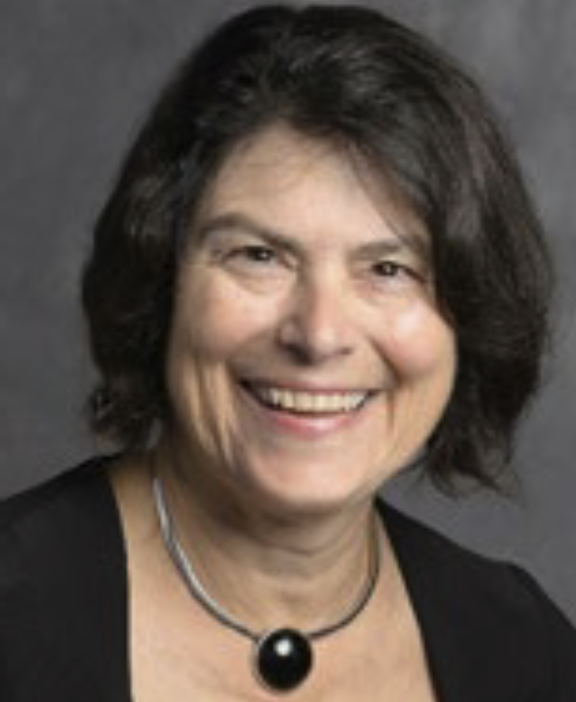
Connie M Weaver, Ph.D.
Connie M Weaver, Ph.D. is Principal Investigator of this TL1, along with Drs. Ix and Wiseman. She is also a Multi- Principal Investigator of the Network Core. She is a Distinguished Research Professor at SDSU. She is a member of the National Academy of Medicine. She has been funded by NIH for over 30 years. Her research focuses on nutrition and prevention of CVD and osteoporosis. A new grant on racial and ethnic diversity in sodium and calcium handling in response to dietary sodium in adults follows from her prior similar work in adolescents. Differences in sodium and calcium metabolism underpin risk of hypertension and osteoporosis. She is a collaborator on Anderson’s R01 (R01HL140488) that focuses on sodium intake and blood pressure. She also leads training in best practices in design and conduct of clinical trials with Anderson. -

R. Luke Wiseman, Ph.D.
R. Luke Wiseman, Ph.D. is Principal Investigator of this TL1, along with Drs. Ix and Weaver. He is a Professor at TSRI. His laboratory focuses on studying stress-response signaling pathways involved in regulating cellular protein homeostasis (proteostasis) such as the unfolded protein response, integrated stress response, and heat shock response. This work has led him to study the implications of stress-responsive signaling in multiple kidney diseases including renal ischemia/reperfusion and systemic amyloidosis and their effect on the kidneys (in addition to other organs). He is currently supported as Principal Investigator of five R01 awards, two of which are from the NIDDK that focus on defining the pathologic and therapeutic implications of the unfolded protein response in systemic amyloid diseases including the transthyretin (TTR) amyloidosis and light chain amyloidosis (R01DK123038, R01DK107604, R01AG046495, R01NS095892, and RF1NS125674).
Faculty with Unique Expertise who can Mentor Across KUH Mission Areas
-

Surabhi Bhutani, Ph.D.
Surabhi Bhutani, Ph.D. is Assistant Professor in the School of Exercise and Nutritional Sciences at SDSU. Her research specifically focuses on understanding how chemosensation (smell/taste) interacts with metabolic and neural signals, thus supporting obesogenic eating behaviors, and understanding how other individual-level factors (sleep, chronotype, etc.) influence chemosensation (smell/taste). She is also on the leadership board of the Global Consortium for Chemosensory Research, spearheading efforts to bring focus on smell and taste on a global platform. Her research program is currently supported by institutional support and grants submitted to the NHLBI. We envision that scholars may work under Dr. Bhutani’s mentorship using the unique tools to measure chemosensation to understand how taste and eating patterns change as CKD progresses. -
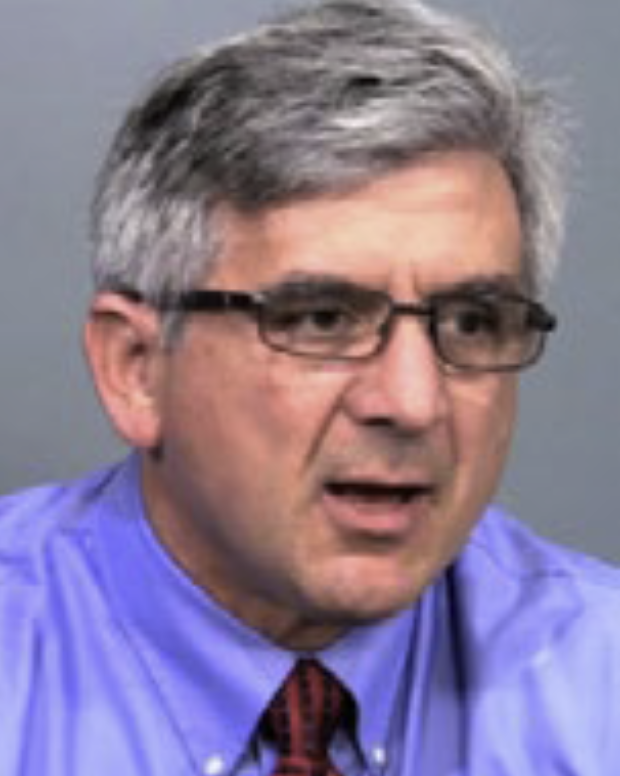
Edmund Capparelli, Pharm.D.
Edmund Capparelli, Pharm.D. is Professor of Pediatrics and Pharmacy at UCSD. His research utilizes population analysis methodologies to enable the characterization of variability and identification of appropriate dosing of medications in pediatric populations. He is Principal Investigator of a U54 (U54HD090259). His laboratory maintains medical licensure under CLIA and provides multiple methodologies including PLC, RIA, LC/MS, and GC/MS. This laboratory has been utilized repeatedly by T32 scholars in our program for development of assays to measure drug levels in their projects. Dr. Capparelli is an outstanding mentor, is PD of a T32 in pharmacology (T32HD087978) and has served as co-mentor for a recent nephrology scholar’s successful K23 applications from our program (Dr. Garimella; K23DK114556) who serves on the TL1’s “Near Peer” Mentoring program. Through this collaboration, he has participated extensively within our Work-in-Progress weekly meetings and has facilitated mentorship for other trainees for the design of studies that require experimental drugs and their measurement. -

Mee Young Hong, Ph.D.
Mee Young Hong, Ph.D. is Professor of Exercise and Nutritional Sciences at SDSU. Her research is focused on examination of the roles of nutrition on chronic disease incidence and progression through promotion of inflammation and oxidation, including cardiovascular disease and cancer. Inflammation and oxidation are key pathways promoting many chronic diseases including kidney and urologic disorders, providing unique opportunities for scholars to work with her group and apply insights from other chronic diseases to evaluate effects on the kidney and urologic system. Her major source of grant support comes from the US Department of Agriculture (USDA) grant with additional support from several commodity boards. -
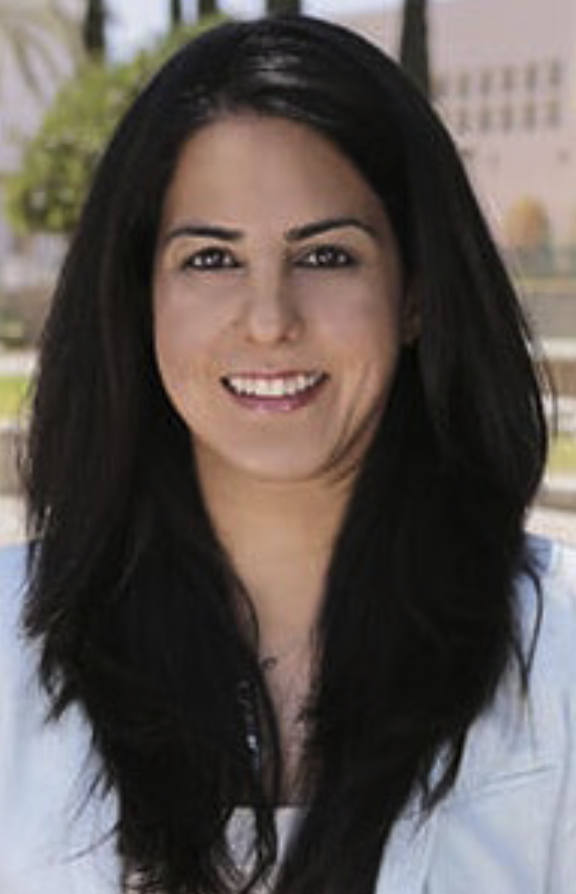
Shirin Hooshmnad, Ph.D.
Shirin Hooshmnad, Ph.D. is a Professor in Nutritional Sciences at SDSU. Her research focuses on improving age-related changes in skeletal health, cardiovascular dysfunction and impairments in cognitive function that occur with physiological aging, and in disease, through nutrition interventions. Her current research interests also include bone and calcium metabolism, in relation to hormonal, microbiome and metabolome changes throughout the life cycle. Much of her work has focused on the effects of nutritional interventions on blood pressure, arterial stiffness, and bone changes, all of which are directly relevant to kidney disease. We envision scholars working under Dr. Hooshmnad’s mentorship to evaluate mechanisms of sarcopenia and bone disease in kidney disease, and testing interventions that might diminish these changes. Current major grant support comes from the USDA and commodity boards. -

Mark Kern, Ph.D.
Mark Kern, Ph.D. is Professor of Exercise and Nutritional Sciences at SDSU. His research encompasses the impacts of numerous functional foods such as fruits, nuts, and minimally refined sweeteners on cardiometabolic disease risk factors, appetite and obesity, bone health, and exercise metabolism. Dr. Kern’s current grant support includes USDA and commodity boards. -

Karen Messer, Ph.D.
Karen Messer, Ph.D. is Professor and Chief of the Division of Biostatistics in the Department of Family Medicine and Public Health at UCSD. Her research focuses on novel biostatistical methods applied to cancer prevention and smoking cessation. She is Principal Investigator of the statistics core for the UCSD Cancer Center P30 (P30CA023100). -
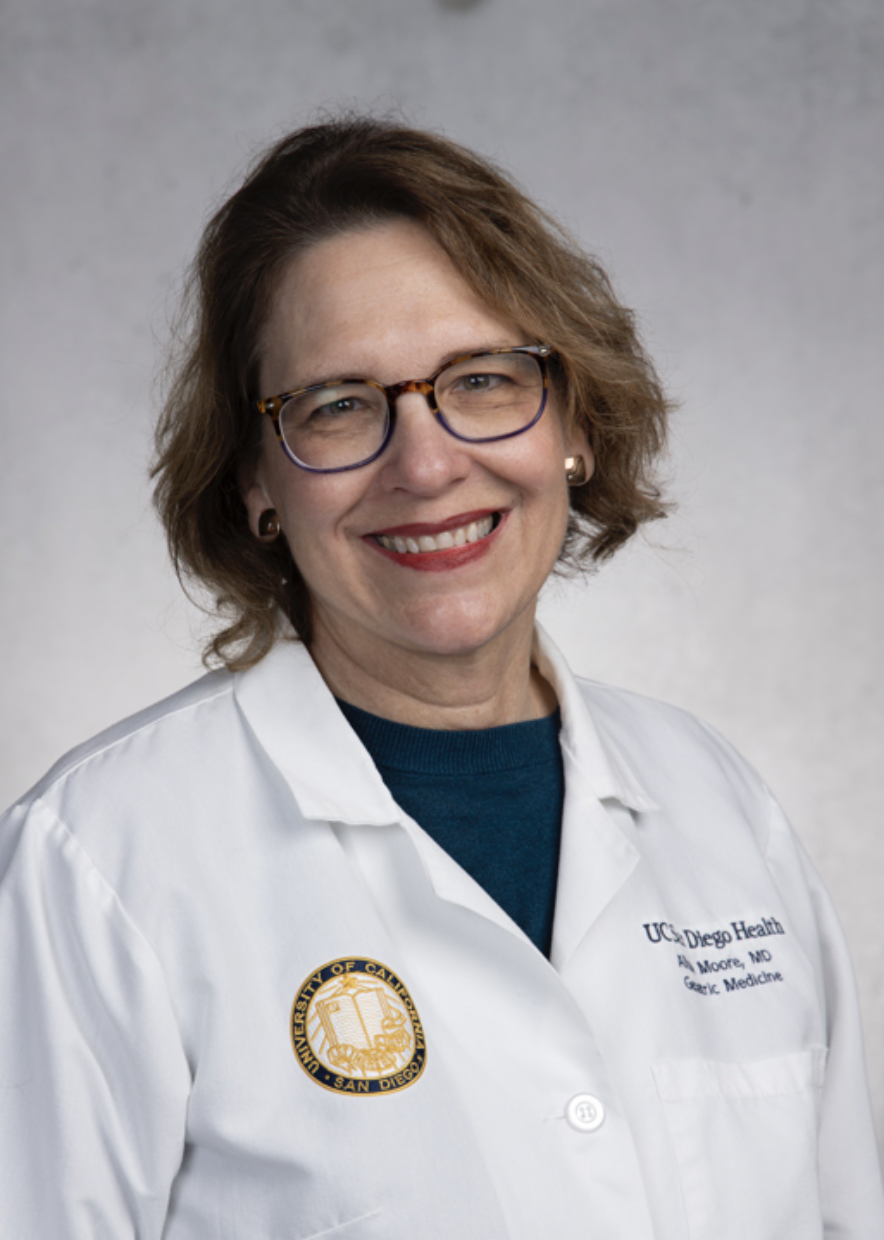
Alison Moore, M.D.
Alison Moore, M.D. is Professor of Medicine and Chief of the Division of Geriatrics at UCSD. Her research has focused on the epidemiology and health-related effects of alcohol and other substances in older individuals, and in developing screening and interventions to reduce unhealthy alcohol use in older adults. Her primary research is currently funded by an R01 from the NIH (R01AA025564). Dr. Moore is also a gifted mentor and is supported by a K24 which protects her FTE for mentoring activities (K24AA015957). She was lead Principal Investigator of the UCLA Medical Student Training in Aging Research Program (MSTAR), where she was first acquainted with co-mentor Dr. Anger. She is also Principal Investigator of a new large P30 grant that focuses on Alzheimer’s disease in Latino populations, and has a core specifically designed to engage and train junior investigators from under-representative minority backgrounds (P30AG059299). -

Victor Nizet, M.D.
Victor Nizet, M.D. is Professor of Pediatrics and Chief of the Division of Pediatric Pharmacology and Drug Discovery at UCSD. His research focuses on bacterial pathogenesis and the innate immune system in relation to the discovery and characterization of bacterial virulence determinants. This work focuses heavily on innate immunity, which is directly relevant to kidney transplantation and has led to productive collaborations with investigators in Hematology and Nephrology at UCSD. Of special note for this T32, he was the recipient of the UCSD Chancellor’s Award for Excellence in Post-doctoral Scholar Mentoring in 2013. He is currently Principal Investigator of three R01 awards (R01 AI142864, R01 AI145325, and R01HL125352) from the NIH. -

Robert Schooley, M.D.
Robert Schooley, M.D. is Professor of Medicine in the Division of Infectious Diseases at UCSD and Director of the UCSD Institute of Global Health. He has developed extensive research collaborations around the world, most notably in Mozambique, Brazil, and China. These collaborations have led to formal grants to support resident and fellow exchange programs which have opened many opportunities for international research collaborations. His own research has focused on viral infections (HIV and HCV). He is well supported by several NIH projects. He is Principal Investigator of a P30 focused on HIV research (P30AI036214), an R01 focused on mechanisms of anti-retroviral resistance in HIV (R01AI131424) and a D43 grant that supports research training of US scholars in Mozambique (D43TW010568). His role in this TL1 will be to support and mentor scholars interested in HIV and HCV as they relate to kidney, hematologic, and urologic diseases, and to leverage his international research collaboration expertise and D43 for scholars interested in developing international focuses to their projects. -

Joann Trejo, Ph.D.
Joann Trejo, Ph.D. is Professor of Pharmacology and Assistant Vice Chancellor for Health Sciences Faculty Affairs at UCSD, where she plays a major role in faculty development. She will lead the Professional Development Core for this U2C/TL1. Here, we briefly describe her research interests, which focus on cell signaling. Her work revealed how cellular responses are regulated by G protein-coupled receptors in the context of vascular inflammation and cancer. Her research has been continually funded by the NIH, including a recent NIH R35 Outstanding Investigator Award, which supports a research program (rather than specific research projects), and provides longer-term support to promote outstanding scientists and promote greater risk (R35GM127121). Her research focuses extensively on vascular inflammation and endothelial dysfunction, which are associated with both diabetes and CKD. As a first-generation Latina and daughter of a migrant worker, she has made tremendous strides for UCSD in the areas of DEI. -
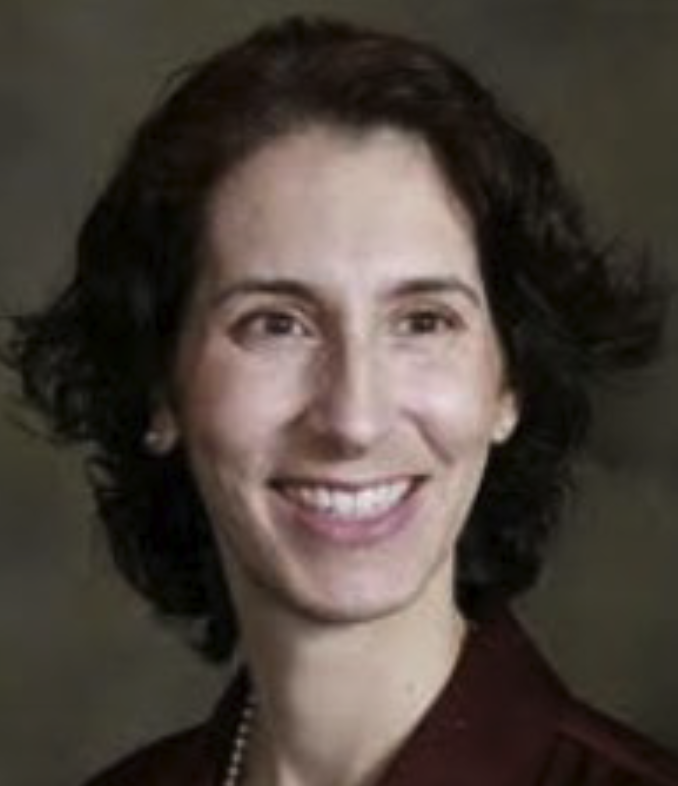
Adriana Tremoulet, M.D.
Adriana Tremoulet, M.D. is Associate Professor of Pediatrics at UCSD and specializes in pediatric infectious disease and clinical pharmacology. She is Associate Director of the Kawasaki Disease Research Center at UCSD which cares for over 1,600 children. As a native Spanish speaker, and Latinx, she has established the Kawasaki Disease Latin American Network that collaborates in 20 Latin American countries in the collection of clinical and phenotypic data of Kawasaki Disease patients to better understand the impact of KD in this region of the world. Her research focuses on repurposing therapeutics in phase I through III clinical trials for infectious diseases. She serves as site Principal Investigator of the NICHD funded Pediatric Trials Network. She also is Co-Director of UCSD’s KL2 program and thereby provides unique insight and expertise in successful writing of CDAs and career mentorship. She is currently Principal Investigator of an R01 award (R01HL140898), and a U34 contract (U34HL148673) from the NIH. -
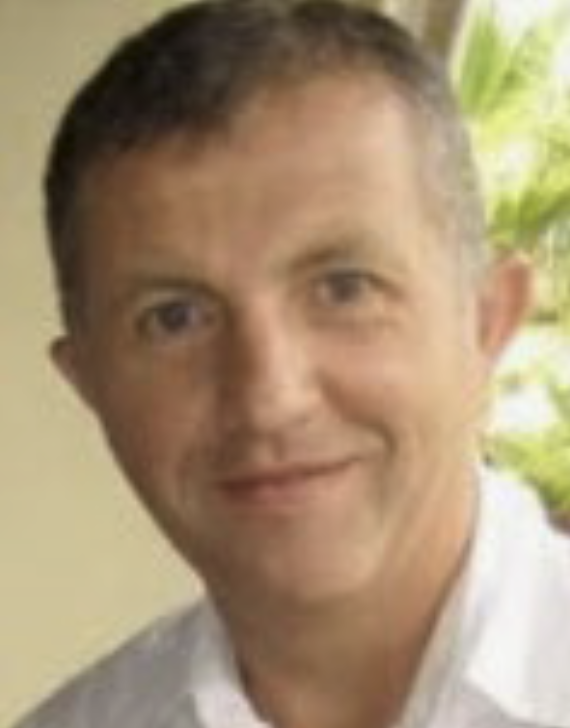
Florin Vaida, Ph.D.
Florin Vaida, Ph.D. is Professor in the Division of Biostatistics, Department of Family Medicine at UCSD. He leads the biostatistics core within the UCSD CREST clinical research training program at UCSD. As several of our T32 scholars have obtained their Master’s degrees and formal coursework in the Master’s program that he directs, Dr. Vaida was recognized as an outstanding teacher and mentor repeatedly. He has been very active in our training program and serves as the biostatistics mentor on the K23 awards for several of the junior mentors participating in this T32 (Ginsberg and Garimella). His pre- and post-doctoral biostatistics mentees are regular attendees at our T32 meetings and actively engaged in projects related to nephrology.